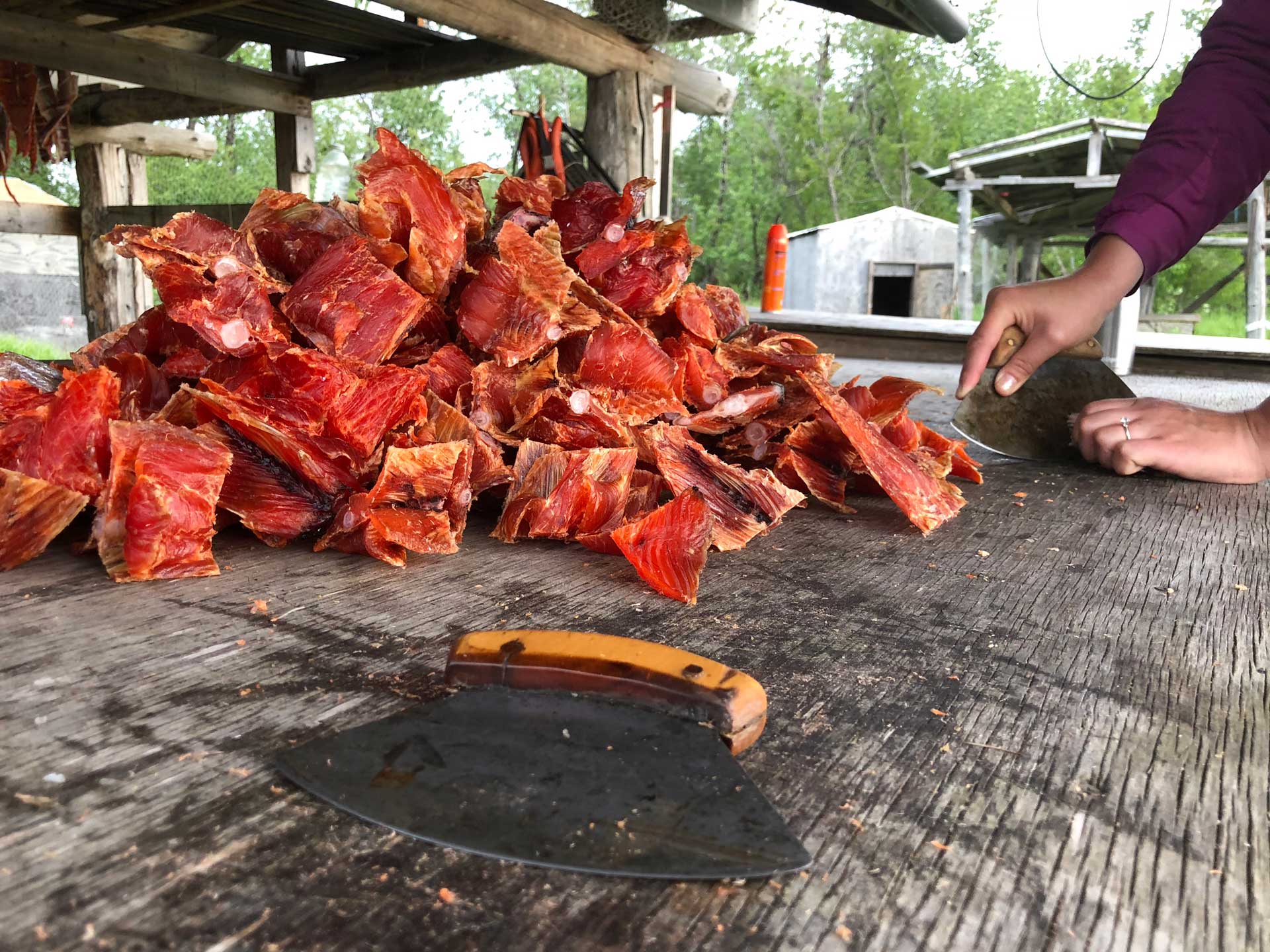
Feeding Mind, Body and Soul: The art of subsistence
by Marian Giannulis
All photos courtesy of Apay’u Moore
Traditional fishing methods build community and well-being in the heart of Bristol Bay

Sixty percent of the meat Apay’u Moore consumes in any given year is harvested through subsistence methods. Salmon are caught with set nets anchored to the beach during the summer. Pike are caught with set nets underneath the ice in springtime. Moose and caribou are hunted in the fall. Subsistence refers harvest and processing of wild resources for food, raw materials and other traditional uses. For Apay’u, these practices don’t just feed her family, they also feed her connection with loved ones and the land. They catalyze community and calm the mind. They play an important role in physical health by supplying nutritious food, but also mental health through participation in the practices themselves.
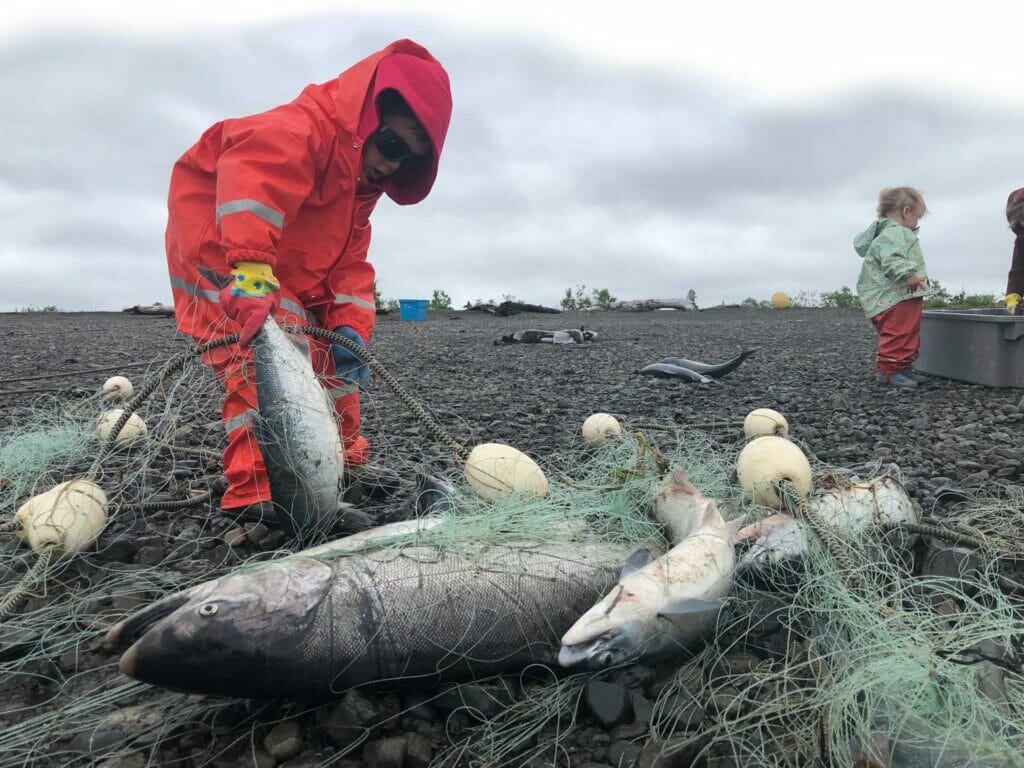

Subsistence fishing engages the mind, the body and the soul.
The mind is activated by how to catch and care for the fish, the body must work hard to haul nets and carry fish to the smokehouse, and the soul is engaged in observing and working with the natural world.

Apay’u is a Yup’ik Alaskan who splits her time in different communities in Bristol Bay, Alaska. Her ancestors have lived off the land in this wild and abundant place, home of the world’s largest sockeye salmon run, for thousands of years. In today’s modern world, food grown and harvested elsewhere is flown in and available for purchase. It is prohibitively expensive, so many residents still rely on subsistence harvest for the bulk of their food supply.
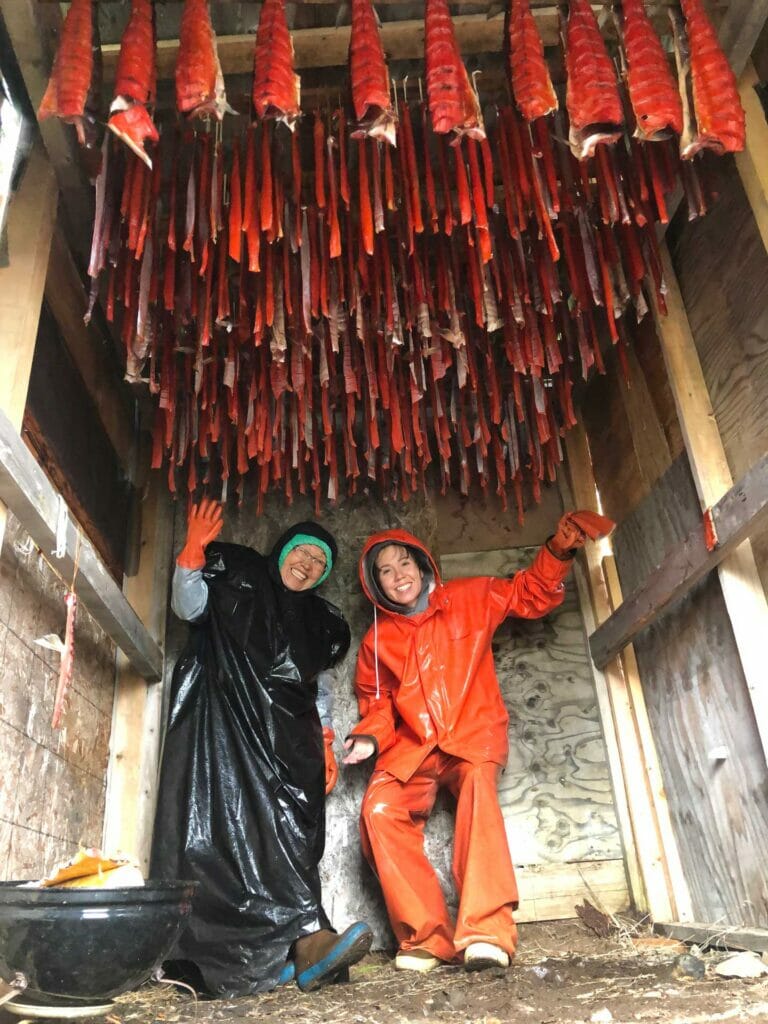
Before colonization, Yup’ik Peoples lived in multi-generational households that followed food sources and resided in seasonal camps in the spring, summer and fall months. During winter months, they would reside in communal homes in villages. Today’s Western priorities and lifestyle have moved away from that, and now individual households are more commonplace. Gathering to practice subsistence fishing methods provides communities with a chance to work together as their ancestors once did. “We are salmon people,” Apay’u says. Salmon still brings them together after thousands of years. During the run, friends and family work together to mend the nets, set the nets, monitor them and harvest fish, and clean and process the fish. These days form important social bonds that are imperative to mental health.
Subsistence fishing also provides practitioners with another important benefit often missing in 21st century lifestyles: connection to nature. Apay’u relishes the opportunity to have her days dictated by the natural world while harvesting salmon, “We try to control so many elements of our life, but when fishing you don’t have control over the tides or the weather. You must connect with nature; it allows you to be flexible and gets you to move along with unforeseen circumstances.”
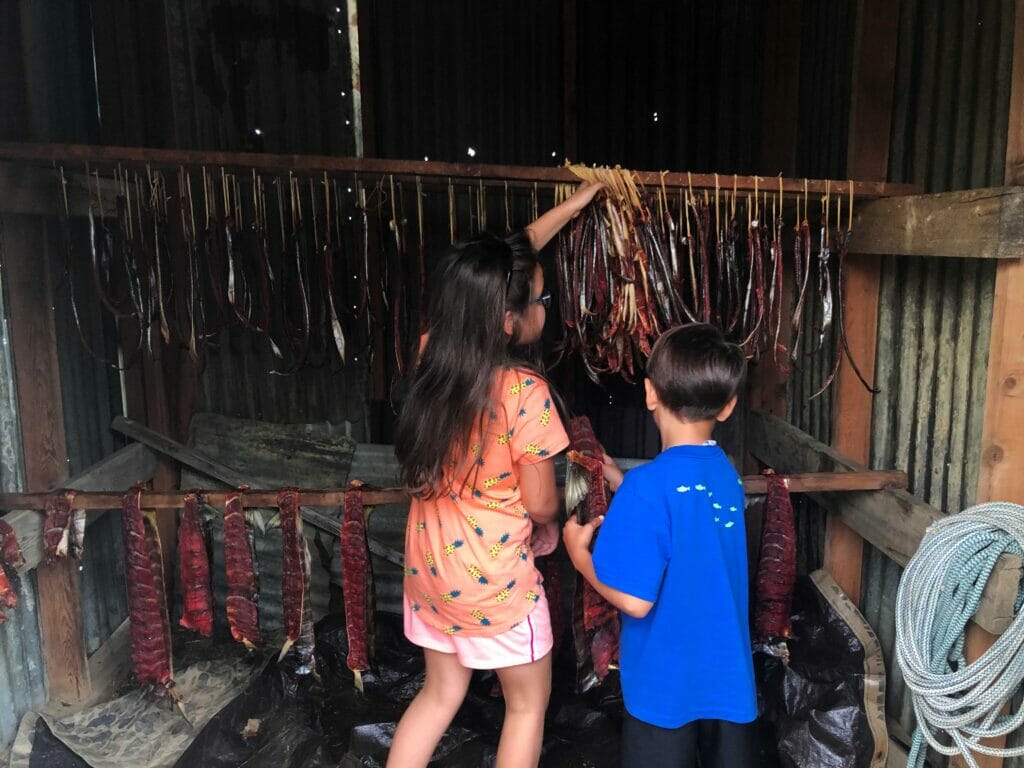
Every step of the salmon harvest is dictated by the natural world, including processing fish. Take the traditional three-day smoke method. After the fish is caught, fileted and cut into strips it must be dried. This process is at whim of the weather and varies with sun, wind and humidity. Then it must be smoked. The timing of this is again dependent on humidity and wind, along with the type of wood, the dryness of the wood and the presence of flies. The exact process is different each time. It requires constant attention and observation. This focus creates a meditative practice.
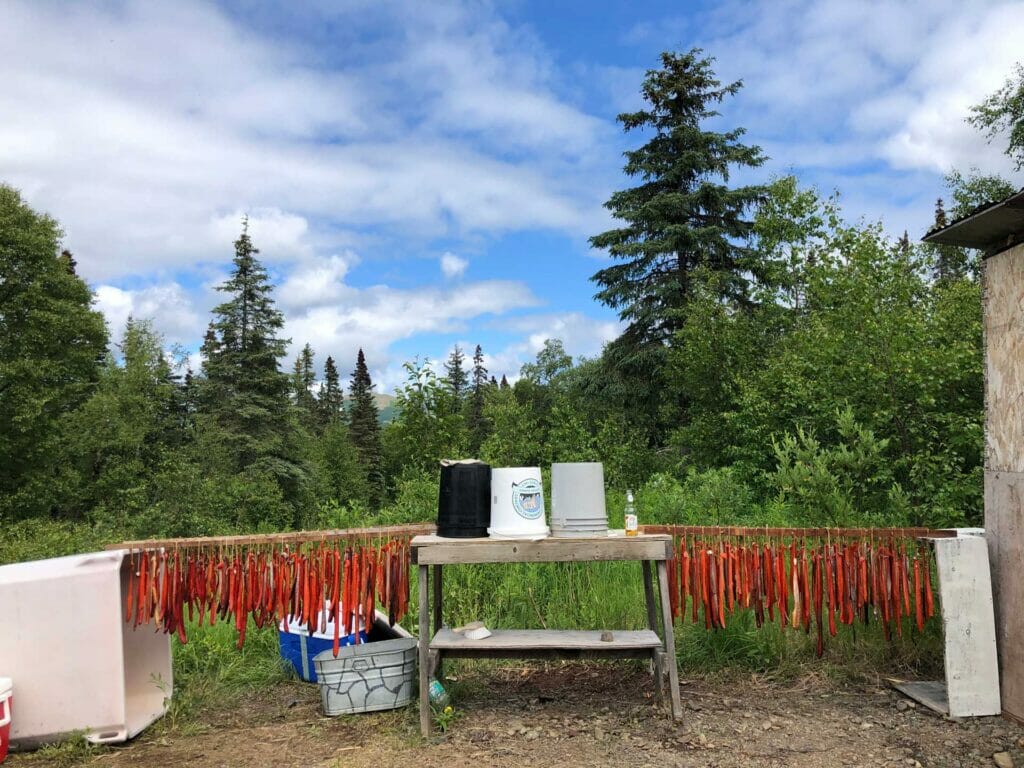
Subsistence fishing engages the mind, the body and the soul. The mind is activated by how to catch and care for the fish, the body must work hard to haul nets and carry fish to the smokehouse, and the soul is engaged in observing and working with the natural world. “Mind body spirit is a break that we need in life,” Apay’u says, “Our ancestors had that figured out, it is a treat for us.”

The exact practices used in subsistence fishing has evolved over the years. Handmade nets are now replaced with store-bought ones, and boats and ATVs allow people to transport their catch home that same day. But, the necessity of this practice, for both physical and mental health, remains the same.
Take Action
Take action now to support Clean Water Act protections for Bristol Bay.


Comments